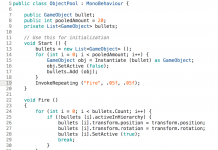CoreWeave is a data center company operating at the heart of the artificial intelligence boom, yet it’s saddled with massive debt, questionable accounting, and heavy insider selling. While the company boasts impressive revenue growth and high-profile clients like Microsoft, OpenAI, and Meta, a closer look reveals a precarious financial structure and a reliance on volatile customer relationships. CoreWeave may be propping up the AI gold rush, but it’s also a ticking time bomb.
The Illusion of Growth
At first glance, CoreWeave appears successful: $1.4 billion in revenue in Q3 2024, doubling from the previous year. The company’s stock price surged after its IPO, but this growth is built on shaky foundations. The core issue is that CoreWeave lacks a clear path to profitability outside of rapid AI adoption, a condition far from guaranteed.
Debt and Dependency
CoreWeave is deeply in debt, with $14 billion outstanding. This debt is secured by its Nvidia chips and data centers, but the company’s reliance on these assets makes it vulnerable to market fluctuations and technological obsolescence. The company’s credit rating is non-investment grade, meaning lenders view it as high-risk. This forces CoreWeave to borrow at higher rates, further straining its finances.
Customer Volatility
CoreWeave’s largest client is Microsoft, accounting for 67% of revenue in Q3. However, Microsoft is also building its own AI infrastructure, making it a potential competitor. OpenAI, another major customer, is investing in its own data centers, reducing its long-term dependency on CoreWeave. Meta, too, is expanding its own AI capacity, further diminishing CoreWeave’s customer base.
Nvidia’s Influence
Nvidia is not just a supplier but also a major investor in CoreWeave, owning about $4 billion in shares. Nvidia’s $6.3 billion contract guarantees CoreWeave will rent Nvidia’s chips, but this deal also ensures Nvidia can backstop CoreWeave’s demand, potentially at the expense of other customers. This dependency on Nvidia raises questions about CoreWeave’s long-term independence.
Accounting Concerns
CoreWeave’s financial structure relies heavily on special purpose vehicles (SPVs), which allow for lower borrowing costs and tax benefits but also obscure the company’s true financial obligations. These SPVs may protect assets in bankruptcy but also shield CoreWeave from regulatory scrutiny.
Insider Selling
Heavy insider selling of CoreWeave stock raises concerns about management’s confidence in the company’s future. While insider selling is not always a negative sign, it adds to the growing list of red flags surrounding CoreWeave’s financial stability.
The Bottom Line
CoreWeave’s success is built on a fragile foundation of debt, customer volatility, and reliance on Nvidia. The company’s aggressive growth strategy may lead to its collapse if AI adoption slows or its major customers defect. While CoreWeave may be a critical component of the AI infrastructure, its long-term survival is far from guaranteed.


































































